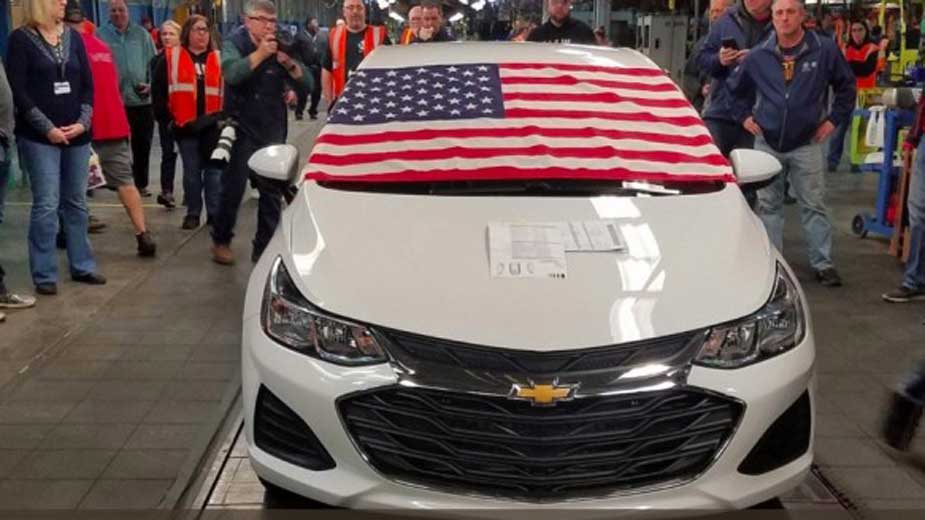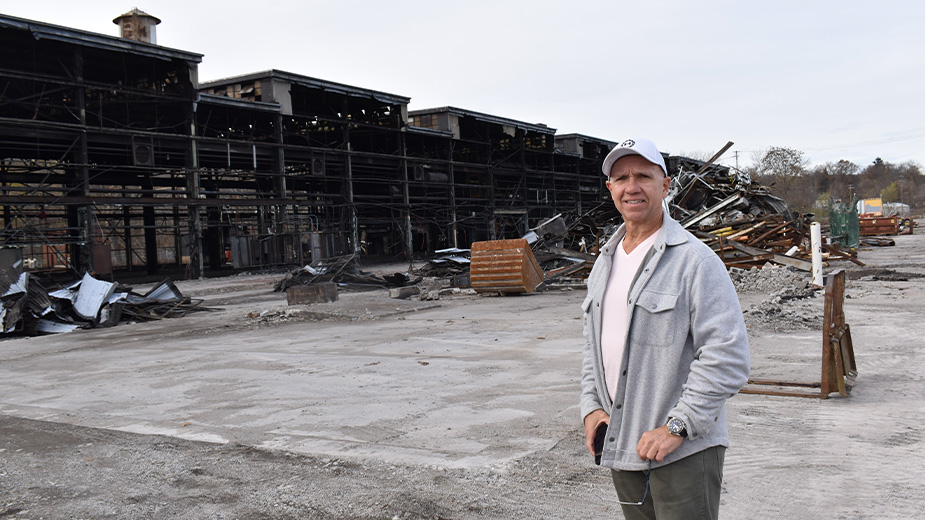Ohio AG to General Motors: ‘We Want Our Money Back’
Editor’s Note: This article was produced in partnership with The Business Journal, based in Youngstown, Ohio, which is a member of the ProPublica Local Reporting Network. ProPublica is a nonprofit newsroom that investigates abuses of power. Sign up to receive our biggest stories as soon as they’re published.
YOUNGSTOWN, Ohio — In a rare display of bipartisanship in an era of political division, Republicans and Democrats across Ohio are pressuring General Motors to repay millions of dollars in public subsidies after the company reneged on a promise to keep its sprawling Lordstown plant open.
Among the latest to join the chorus is Ohio Attorney General David Yost, a Republican, who in an unusual move Tuesday filed a blistering 63-page brief before state tax regulators demanding they seek full restitution of more than $60 million in tax credits the automaker received between 2009 and 2016.
“Profit, it has long been said, is not a dirty word in Ohio,” the filing reads. “But a broken promise is.”
GM contends it shouldn’t be held responsible for repaying the tax credits. The automaker has urged that the state consider market conditions as a major factor in closing the plant, which produced the fuel efficient Chevrolet Cruze.
“GM complains that consumer preferences changed, and that the small cars manufactured at the plant were less popular – that gutting the manufacturing base of the Mahoning Valley by closing Lordstown was just business,” the attorney general’s brief stated. “Ohio welcomes its long and continuing relationship with GM, but we want our money back. It’s just business.”
Last month, The Business Journal and ProPublica first reported that the state notified GM it was in violation of two tax credits agreements the automaker signed in 2009. A notification sent to the company in March from the Ohio Development Services Agency informed GM that it would recommend to the Ohio Tax Credit Authority that it terminate the agreements and pursue a 100% refund.
GM responded that the state should forgive all, or a substantial amount of, the tax credits.
The fate of the plant captured national attention when it closed and again last week when Vice President Mike Pence visited Lordstown to unveil a prototype electric pickup truck built by Lordstown Motors Corp., which took over the GM site.
Though Republican and Democratic officeholders in Ohio don’t often see eye to eye, they agreed that GM should pay the incentives back.
U.S. Sen. Sherrod Brown, an Ohio Democrat, demanded that the state claw back all of the incentives, especially since GM opted to build its new Chevrolet Blazer in Mexico. “After its workers drove the success of the company for years and made the Lordstown plant one of the most efficient in the world, GM turned its back on Lordstown workers and walked away from the [Mahoning] Valley,” he said in a statement.
Brown’s Republican counterpart, U.S. Sen. Rob Portman, also said he supports Ohio’s efforts to collect from GM. “They should be paid back when people pull up stakes and leave and don’t make their commitment.”
U.S. Rep Tim Ryan, a Democrat who represents the Mahoning Valley, also called for GM to make restitution. State Sen. Sean O’Brien, a Democrat from nearby Bazetta, noted that GM should pay the state back some, but not necessarily all, of the subsidies.
The one Republican who isn’t fully on board is the one with perhaps the most power: Gov. Mike DeWine. Last week, after touring Lordstown Motors, DeWine said his office wasn’t “actively pursuing” a clawback from GM. Instead, the governor said the state was engaged in “constructive conversations” with the automaker on how to create jobs throughout the state.
In 2009, GM inked a job creation tax credit agreement worth $14.2 million with the condition that its Lordstown plant would remain operational until 2040. A second job retention agreement worth $46.1 million signed that same year required the automaker to ensure Lordstown was open until 2028.
GM said it would stop making Chevrolet Cruzes at the plant beginning in March 2019 and officially closed Lordstown that October, eliminating the remaining 1,600 jobs there.
The Attorney General’s brief called into question GM’s contention that market forces precipitated the Lordstown closure. “GM is one of America’s largest corporations, valued at $50 billion when it shuttered Lordstown. GM simply has no valid excuse or argument.”
According to Yost’s filing, GM initiated a pattern of breaking its promise to the state in January 2017 when it eliminated an entire production shift at Lordstown, cutting 1,200 jobs. A second shift was slashed in July 2018, eliminating another 1,500 jobs. The remaining 1,600 hourly and salaried employees were cut when the last Cruze rolled off the line in March 2019.
The attorney general urged the Ohio Tax Credit Authority to demand nothing short of a 100% refund from GM. Anything short of this constitutes a “moral hazard of saddling Ohio taxpayers with GM’s business risk,” according to the brief.
GM’s argument that the state consider mitigating factors such as market conditions and new investment in the Mahoning Valley rings hollow, according to Yost’s brief, which cites data that show a booming auto industry. Instead, GM said that closing Lordstown would save GM $6 billion by the end of 2019, according to documents.
Indeed, the $60 million repayment to the state would constitute just 1% of the money GM calculated it would save in the first year of shuttering Lordstown, according to the brief.
The attorney general’s brief also takes issue with GM’s argument that the plant’s sale to Lordstown Motors and its projected $2.3 billion battery cell manufacturing plant in the village represent an effort to make good on the closure of the assembly complex.
“Even this ‘charitable’ endeavor came at the cost of Ohio taxpayers – this time, a 75% tax abatement that will extend over 15 years to allow the company to move forward with this new plant,” the brief says of the new battery venture, a partnership between GM and LG Chem now named Ultium.
Yost’s brief warned that should the Ohio Tax Credit Authority forgive GM’s liability, then it weakens the very nature of Ohio’s economic development programs and state’s ability to go after errant businesses in the future. “The state’s agreements to retain and create jobs will be mere fiction, excused by the slightest inconvenience. Ohio may as well give its money away,” the brief reads.
Should the tax authority mandate that GM repay its full tax credit and the company refuse to honor the demand, then the “attorney general is prepared to enforce the matter in court,” the brief said.
“Ohio never assumed GM’s business risks, and was denied the benefit of the bargain,” Yost’s brief noted.
Todd Walker, spokesman for the Ohio Development Services Agency, said the tax authority would consider the matter at a future meeting.
Pictured at top: March 5, 2019: Last Chevrolet Cruze produced at GM’s former Lordstown plant.
Copyright 2024 The Business Journal, Youngstown, Ohio.



